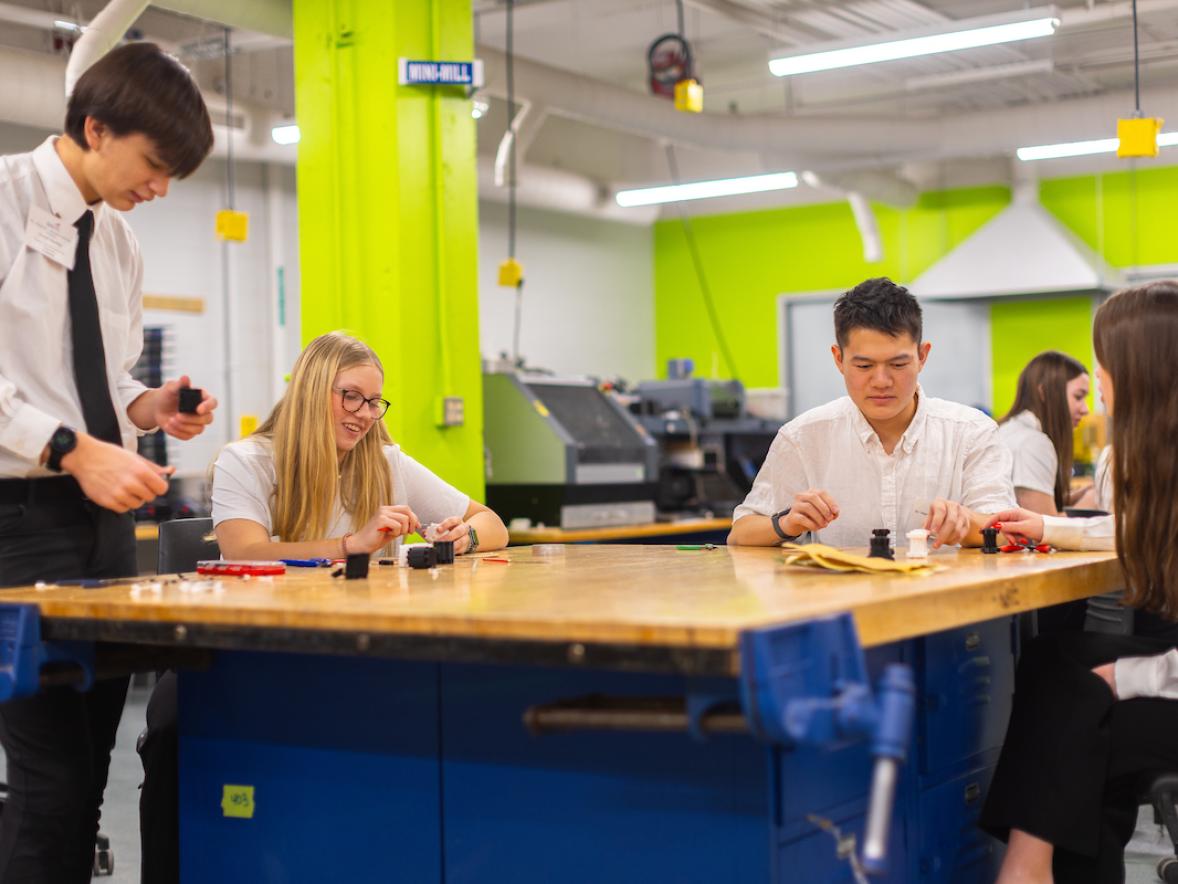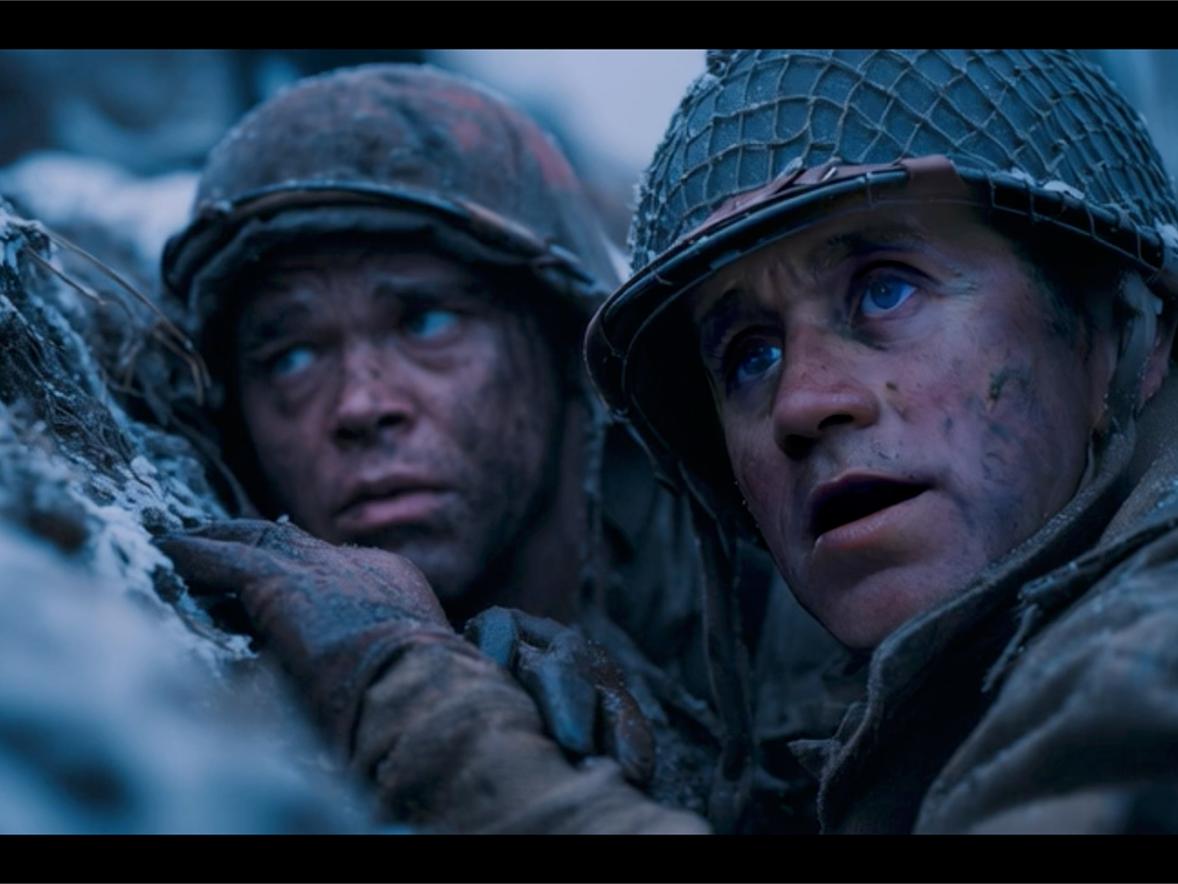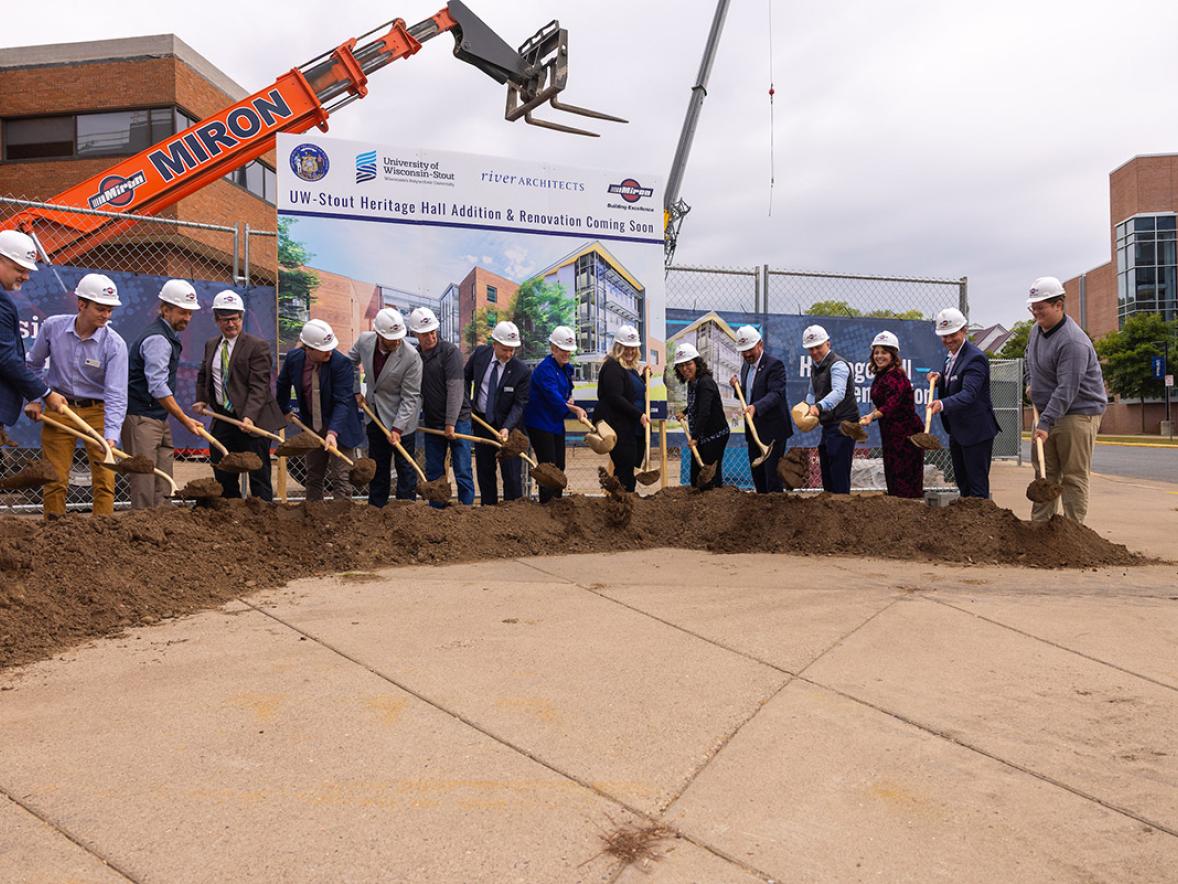What started as a project to help build their resumes turned into an international award for three University of Wisconsin-Stout students from the Rehabilitation Engineering and Assistive Technology Society of North America.
Kyle Cleven, industrial design of De Pere; Michael Laffin, computer and electrical engineering, of Spring Valley; and Dexter Rausch, industrial design, from Peterborough, England, won the RESNA Student Design Challenge in June, an annual competition that showcases creative and innovative assistive technology designs to help people with disabilities live more independently.
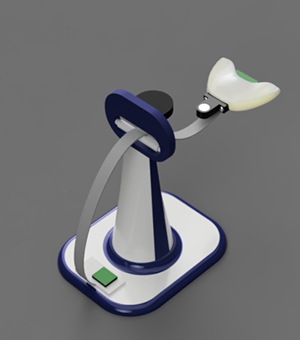 Entries are judged on originality, quality of design and usefulness to persons with disabilities.
Entries are judged on originality, quality of design and usefulness to persons with disabilities.
The students, who will be sophomores this fall, entered a project called ATOM: Adaptive Tongue Operated Mouse.
ATOM is a mouth- and tongue-operated mouse for those who are paralyzed or have ALS — amyotrophic lateral sclerosis — to help them use a computer. On the bottom of a molded plastic retainer – similar to what dentists make – is a miniature joystick operated by the tongue and two buttons that use jaw movements, the left click key and right click button. The retainer is made to fit each user.
“It has to be easy to slide into your mouth without using your hands and also to take out,” Cleven said. “It has to fit correctly but not too tightly.”
The prototype plugs into a computer but could easily be made into a Bluetooth wireless model, the students determined. It comes with a stand, locking onto the stand with a magnetic clip. Cost of materials for the ATOM were about $25.
The student design competition drew 76 entrants. After judges reviewed the concepts, which included a video, seven finalists were invited to the RESNA convention in Toronto held June 24-28. The students also displayed their concepts at the event.
Other finalists were:
- Reka: Vocabulary suggestions for augmentative and alternative communication devices, University of Waterloo in Canada, second place
- Emospace: Mobile game for emotion recognition training in children with autism, National Cheng Kung University in Taiwan, third place
- SmartHub: An activity monitoring device for manual wheelchair users, Ohio State University
- SipClip: An assistive dental device for people with bulbar dysfunction, Duke University Pratt School of Engineering
- Toe Tronics: A portable device measuring the toe extensor strength; University of Oklahoma Health Science Center
- Touch Mug, New York University.
The UW-Stout team took first for its presentation, earning $1,000, and first for its display. When they were announced as the winners, they were shocked. “We didn’t expect it. We were in the back of his huge auditorium. We were excited,” Laffin said.
“Most of the teams who entered were Ph.D. students. We were there for the experience and to observe and have fun,” he said.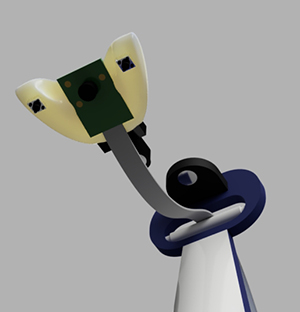
Duke University was the only other team with traditional college students, Cleven said. Many of the competitors were funded by the National Science Foundation or their campuses, but the UW-Stout team was not, he added.
A grant from the Rehabilitation Engineering Center on Augmentative and Alternative Communication paid for Cleven and Laffin to go to Toronto.
They have looked at patent options and are considering the future of ATOM. “It is still pretty early in the development stage,” Laffin said.
“Talking to people at the display, there seems to be a lot of potential for the project,” Cleven said. “They liked the simple idea of it.”
Laffin agreed. “There seems to be a niche market for it,” he said. “It’s a viable product.”
A woman from Israel asked if they could create ATOMs if she sent them nine custom-fit retainers.
Yearlong project
Laffin was looking for a project for his Impacts of Engineering: Introduction to Engineering class and was researching other adaptive technology. “Interacting with a computer is very important now,” he said. “I was looking around and didn’t see a lot of ideas for this type of mouse.”
Cleven and Rausch worked on computer-aided design models for the project and developing the mouth retainer. Laffin built the model and wrote the software to program ATOM.
“We started working on it in October 2018,” Cleven said. “Michael had a basic engineering class, and his group had thought of the idea but hadn’t built it. He came to me with the idea and said we should enter this competition. We thought it would be a great resume builder working on this outside of class, even if we weren’t finalists.”
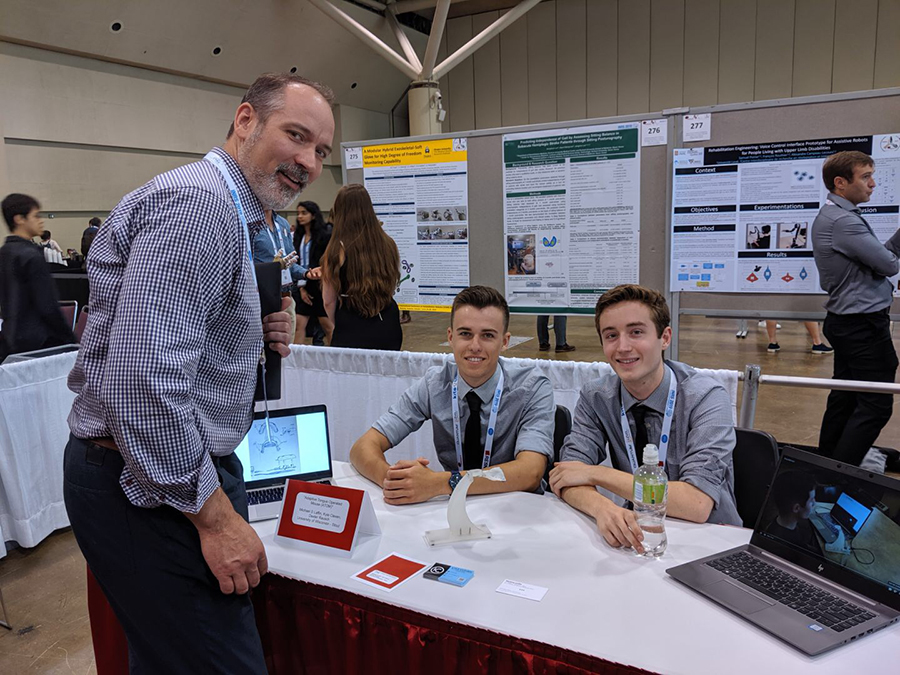
The three enjoyed working on the project together.
“We didn’t have anything to lose by entering the competition,” Cleven said. “We did our best. It was weird but cool we were able to beat them. It’s kind of surprising. We didn’t know how competitive this was.”
Meanwhile, the students are happy to know they have an international award to add to their resume and a possible future product that could help others.
UW-Stout also offers bachelor degrees in manufacturing engineering, plastics engineering and mechanical engineering as well as a master’s degree in manufacturing engineering.
UW-Stout is Wisconsin’s Polytechnic University, with a focus on applied learning, collaboration with business and industry, and career outcomes.
###
Photos
ATOM is operated with a mini joystick operated by the tongue and two buttons that use jaw movements for the left and right button clicks on a mouse.
Each ATOM would have its own retainer made to fit each user
UW-Stout students Kyle Cleven, at left seated, and Michael Laffin attended a conference in Toronto where they presented on ATOM.





